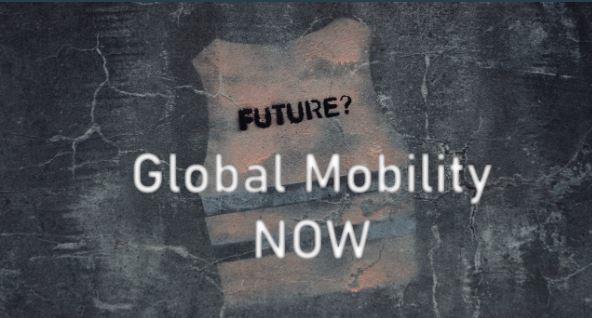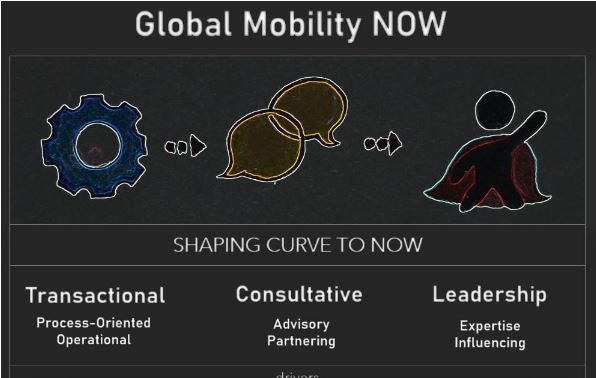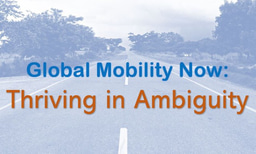The state of Global Mobility NOW!

The COVID-19 pandemic puts the cherry on top. Global Mobility has been changing over the years and this pandemic only accelerated what we thought was the future of GM. Well, everyone, let me tell you that this future has officially become NOW.
The function of Global Mobility is experiencing a significant transformation for at least a decade now as I observe it. During my entry into this exciting world, I was part of teams that were focusing on standardizing processes to deliver consistent benefits as aligned to policies and principles. Some years after, likely as order and structure had by this time been well established, focus were all about re-engineering practices and policies centered towards customer experience. GM teams transformed from delivering transactions to becoming advisors and business partners.

It was just a year ago when I started hearing, with excitement, the concept of future of work for GM. I was overwhelmed by merely reading about how GM could catch-up with the technological revolution affecting all industries and practically all business functions. I thought, how do we respond to the changes on the demand for talent, and how talent itself is changing? I only hoped that this reality would be far into the future and that we would have enough time to think about how we can prepare ourselves for it.
Then, 2020 began. Expectations for GM practitioners changed in the speed of light. Suddenly what used to be a future we were comfortably preparing for is here right in front of us. Being advisors and partners to enable successful talent moves were no longer enough. It's not only because of the pandemic now; this higher level of demand from us will be there through the new normal.
The fast-changing economic landscape we are seeing now, accelerated by the pandemic, is showing us an unprecedented number and frequency of changes in immigration, travel practices, supply of goods and services (therefore, talent to support them) and culture. Our business and HR leaders now look to us with their ever-challenging requirements to survive in this new normal. We are faced with dilemmas significant to our quest for the best talent for our organizations: talent diversity vs cost and safety; build vs buy talent; sustainability of operations and talent driving us to revisit being local or regional vs globalization.
In many ways this challenging time legitimizes GM's value we had been reminding our business partners long ago. So this is Global Mobility's time to shine. But do we have what it takes to be stars? Based on my actual experience in the past 12 months, especially since January this year, the three most important skills GM teams need at this time are: Agility, Change Management and Leadership.
Agility: The ability to think and understand quickly. In GM terms, this is the ability to take on a challenge and act on it, fearlessness to experiment and deliver something of value quickly and humility to improve it continuously.
Management of Change: Knowing the downstream impact of a change and the ability to involved parties to adapt to these realities to drive a successful outcome. This is GM teams maintaining good stakeholder and customer relationships with credibility and trust to be able to mobilize adjustments towards the best outcome.
Leadership: In Global Mobility, leadership is knowledge and expertise: being abreast of the crucial drivers for business and assignee success. Leadership is also being able to influence stakeholders and customers through one's track record of credibility and success. I see great GM leaders who I really look up to and all of them are lifelong learners. They continue learning new things both in their GM world and outside. The quality of curiosity and learning are definitely two enablers of having leadership skills in this function.
These skills are not built overnight, but with the speed by which we need to transform ourselves, it feels like it is. How does one develop their GM team for these new skills? It takes a good leader who will relentlessly model the learning behavior, who will connect the team to great minds and mentors, and who will enable the team to be peer coaches to each other.
You have been interested (or patient) enough read this article up to this part. Chances are you may very well be one of the leaders who can enable their team or peers accelerate the adaptation of this skills. It starts with you, the openness to learn, the acceptance that there is indeed a need to change and FAST.
Marie is a leader of leaders, guiding teams managing the whole employee life cycle of the Asia expatriate population in Unilever. This involves working on strategies to keep the company’s policies market-competitive and improving processes with agility in an ever-changing environment. Over the course of nearly a decade, Marie has built a strong track record on global mobility policy and operations. Prior to Unilever, Marie was International Mobility Manager for Australia New Zealand Bank (ANZ) for five years and, previous to this, spent four of her 13 years in the energy company Chevron as Global Mobility Operations Counselor and Processing Supervisor. As a certified Global Professional in Human Resources (GPHR), Marie is adept to global trends not only in the mobility world but in international human resources as a greater function. She also works on collaborative projects for the HR Certification Institute (HRCI).
This article was also published on LinkedIn.

Please sign in or register for FREE
Sign in OR sign up to become a registered The Forum for Expatriate Management website user
Subscribe here